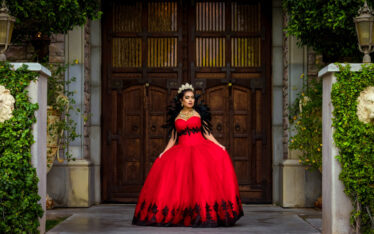In this final blog post in the “A Complete Overview of Event Photography” series, we take a look at what it takes to be an event photographer. The first thing that comes to mind is passion. Are you drawn to the prospect of attending a variety of events, not merely as a spectator, but as a professional photographer? If so, the life of an event photographer may be for you. However, there’s more to this niche than simply picking up a camera and showing up at an event. You need to find clients, acquire the right equipment, and understand the logistics of taking compelling photos that your clients will love. In this article, we’ll cover the fundamentals of what you need to do if you want to be an event photographer.
What Type of Events Do You Want to Cover?
First off, “Events” is a broad category. The following are some of the many events where photography is quite common.
- Concerts
- Sporting events
- Festivals
- Awards ceremonies
- Corporate events
- Private events such as weddings, parties, anniversaries, Bar Mitzvahs, etc.
You can, of course, photograph more than one type of event. However, it can be helpful to specialize, especially if you’re just starting out. There are different requirements depending on the type of venue, the number of participants or spectators, and the rules and protocols for photographers. It helps if you enjoy the atmosphere. For example, you wouldn’t want to cover concerts that play a type of music you don’t like. If you have some connection with the topic or subculture, you’ll feel more comfortable and enjoy your work much more.
Create a Personal Brand
If you want to do event photography as a profession, or even as a side hustle, you need to establish an identity. At the very least, you should have a professional looking website and business cards. It is also a good idea to create profiles on social media sites such as Facebook, LinkedIn, and Instagram.
In the digital age, your website is your main promotional tool. If you don’t have web design experience, you can hire someone to create your website. You can also use a beginner-friendly website builder such as Wix or Squarespace that offers attractive templates. It is a good way to get started. Your website should include a logo, a list of services, contact information, rates, and most importantly a portfolio to showcase your work. Even if you don’t have professional shots or experience, you can still create a portfolio from photos you’ve taken.
Promoting Your Services
Let everyone you meet know that you’re interested in shooting events. Do this in person as well as online. Social media platforms are useful for this – use hashtags relevant to your niche market and post regularly so that potential clients know who you are and what kind of services you offer.
Networking
Networking is key in this industry. Building relationships with people in your local area can help open doors when it comes to getting more gigs. You should also consider joining professional groups such as The Professional Photographers of America (PPA) which can provide valuable resources like training courses and mentorship that will help advance your career as an event photographer.
Dedication, Patience & Professionalism
Dedication is essential for any successful event photographer. Events can last anywhere from a few hours to multiple days, so having the stamina and focus necessary for an extended period of time is key. Event photographers also need patience; waiting for the perfect moment in order to get the best shot may require standing around or sitting quietly until it happens. Lastly, being professional while interacting with clients during events is something all good event photographers strive towards – professionalism goes a long way when it comes to building relationships with customers.
Creativity
Creativity plays an important role in capturing unique angles and perspectives during events. A great event photographer will develop their own style over time by experimenting with different techniques such as lighting, framing and composition, which allows them stand out in their field of work.
Additionally, embracing new technologies like using drones, or 360-degree photography can help take your creativity to the next level.

As you can see, becoming an event photographer is certainly multi-faceted. But if you truly have the desire; then the best way to learn is to get out there and just start doing it. Use whatever camera and other equipment you have and try your hand at photographing some smaller events.
Read some good resources, like this event photography blog 😉, and watch some YouTube videos to start perfecting your craft. Over time, you’ll start to make less mistakes, and take better pictures more often. Then at the next smaller event, casually mention to people that you’re interested in getting gigs. As you progress, you’ll gain contacts, build up your portfolio, and continue to refine your techniques.
It will take a little bit of time but remember…no one becomes an expert overnight. It’s just like that old saying, “You have to crawl before you walk, and walk before you run”.
In conclusion, becoming successful as an event photographer takes hard work and skill – but if you’re dedicated enough, willing to put in the work and push yourself creatively, then there’s no limit to what you can achieve!
Good luck and Happy Shooting!







